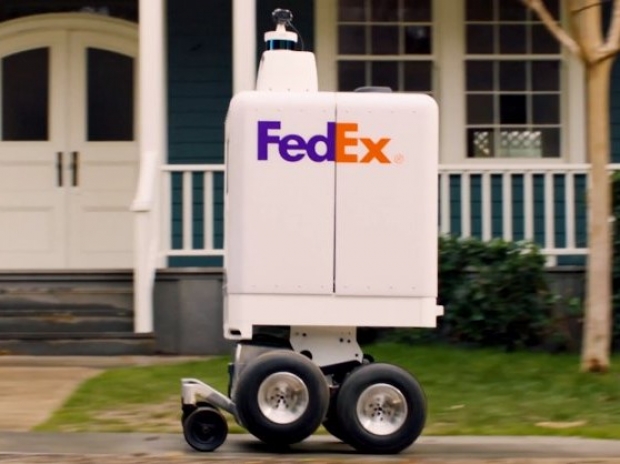It's partnering with major brands, including Walmart, Target, Pizza Hut and AutoZone, to understand how delivery robots could help other businesses.
Robot deliveries on sidewalks have been contentious in dense cities such as San Francisco. Pedestrian advocates are concerned about motorized vehicles, such as robots or e-scooters, crowding sidewalks and potentially creating safety issues. Of course, if they are on the roads, they will cause accidents, and if they deliver to some houses, they are going to be shot at.
SameDay has a top speed of 10 mph and can carry about 100 pounds. A company spokesman said its typical speed would vary depending on the route. The robot relies on sensors typically used on self-driving cars to identify and avoid pedestrians.
It has solved the Dalek problem and can climb steps, but customers will need to be home to accept packages — it won't leave a package on a doorstep or open a front gate, so no change there.
The robot is being developed by DEKA, the Manchester, New Hampshire engineering company owned by Segway inventor Dean Kamen. It's based on and resembles the iBot, a motorized, self-balancing wheelchair that Kamen built in the 1990s.
Amazon announced last month that it's testing a delivery robot in Snohomish County, Washington. Postmates, a Silicon Valley delivery startup, unveiled a delivery robot in December. Last month the startup Starship Technologies began deliveries on George Mason University's campus in Fairfax, Virginia.
A FedEx spokesman said it believes autonomous vehicles will create new higher-paying jobs, such as remote operators, software developers and machine experts. FedEx will use the robot for deliveries like pizzas and prescriptions, which are not normally made with FedEx's traditional delivery vehicles.




